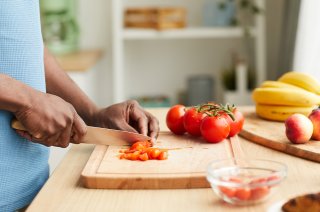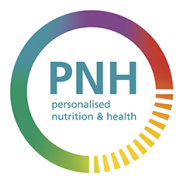
category_news
Personalised dietary intake
Personalised nutrition really helps in stimulating a healthier lifestyle. At the same time, there is still much to explore. For example: Should individual responses to a dietary trigger also be taken into account for personalised dietary advice? How to best personalise dietary advice to achieve a real (long-lasting) change in consumer behaviour? Learn all about WUR’s latest insights in the workshop ‘Personalised dietary intake’ at the PNH Conference 2021, and engage in a discussion about the implementation on a large scale.
Nicole de Wit, scientist Consumer Nutrition & Health, Wageningen University & Research (WUR)
A healthy lifestyle is an emerging topic in current society, especially demonstrated again by the Covid-19 pandemic. People with a healthy lifestyle are more resistant to infectious triggers and are at lower risk of developing chronic (metabolic) diseases, like type 2 diabetes and coronary heart disease. Overall, in our aging society a healthy lifestyle substantially contributes to healthy aging with an improved quality of life. It is common knowledge that food & nutrition play an important role in this, but how to empower people to adhere to a healthy eating pattern, not only for a short period of time but also for the long run?
Personal approach
There is increasing evidence that a more personal approach can effectively stimulate and motivate people to comply with a healthy diet that meets their individual needs and preferences. For this, many personal factors can and have to be taken into account. Content-wise, questions like what is the individual’s health status, is he or she a vegetarian, and what are the nutritional recommendations for a specific person (e.g. elderly have higher needs for protein intake than adolescents and when you are constipated you might benefit from eating more fiber), must be taken into consideration.
Also the form of the advice might add to a personal approach, for instance how the advice is presented, when and by whom it is provided? Another interesting factor to take into account is the bioavailability of nutrients. Is the uptake of every nutrient by the body the same for every individual?
Finding answers together
In our research on personalised nutrition and dietary advice, we encounter(ed) many of these questions and in our workshop at the PNH Conference we want to enlighten some of the answers that we already found. For instance, not every person shows the same uptake of amino acids after a protein challenge. And a digital advice tool can really help people to eat more fiber.
Furthermore, we would like to have a fruitful interaction and discussion on the potential of personalised intake and how different stakeholders, such as food companies, policy makers and knowledge institutes can contribute to future perspectives and implementation on large-scale? By collaborating on this topic we believe we can really make a substantial contribution towards a healthier lifestyle.
Want to join us in this workshop? Please register for the Conference Personalised Nutrition and Health on 7 October 2021.
